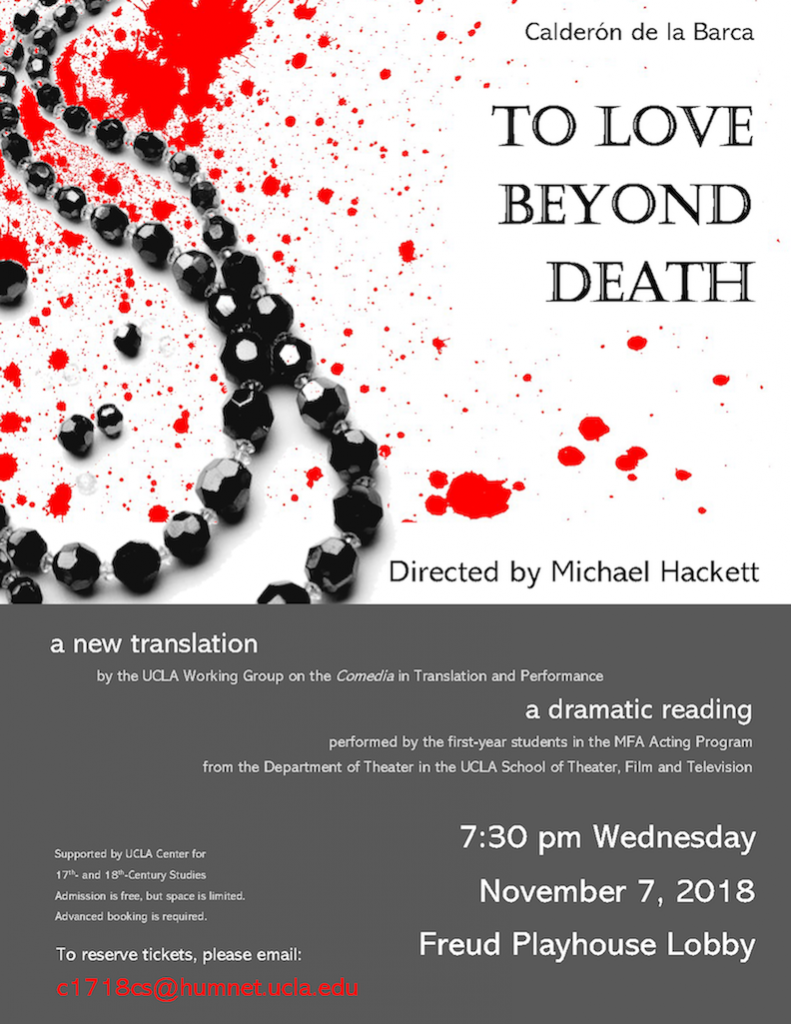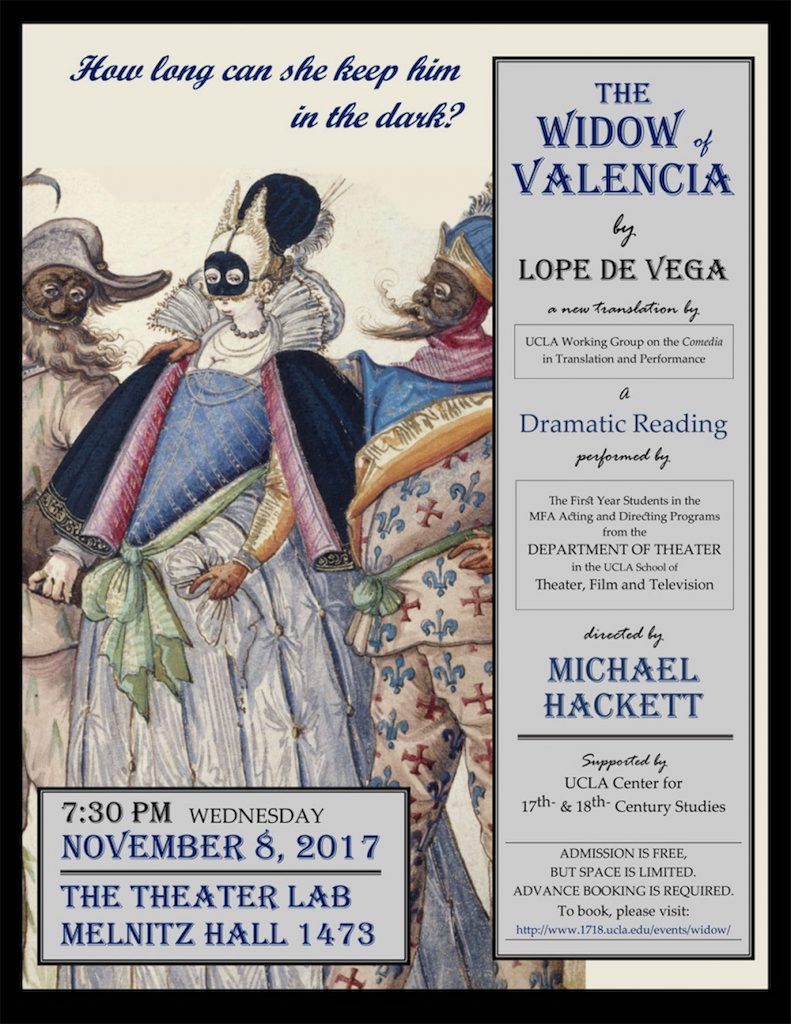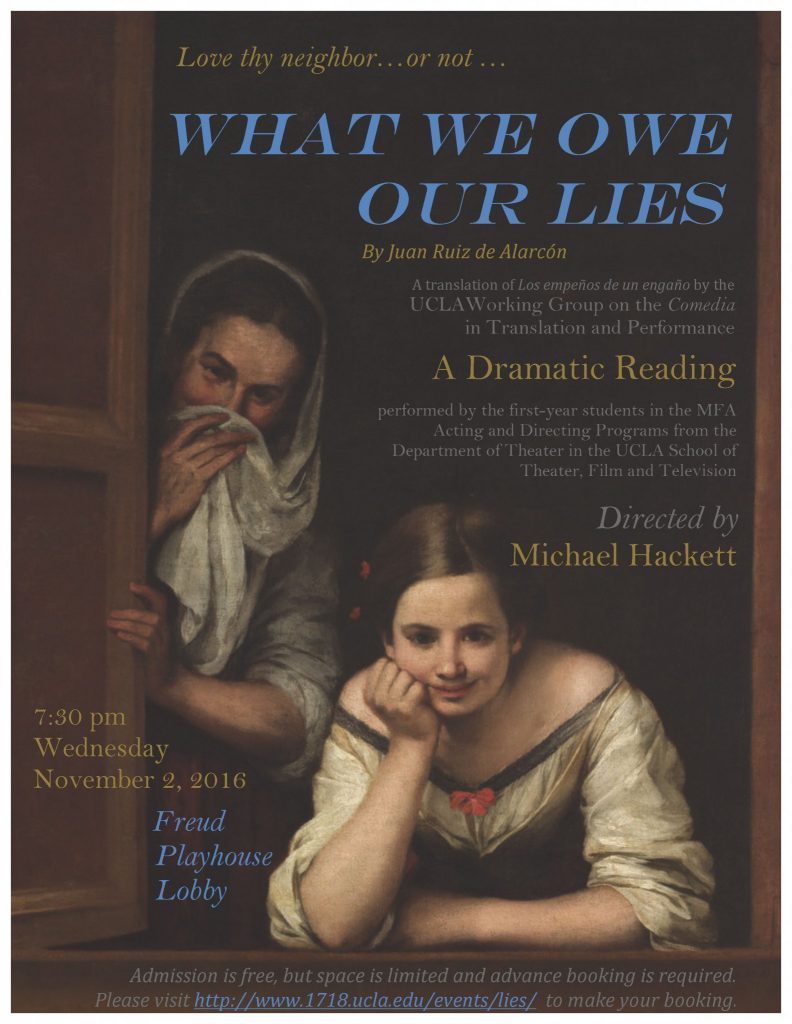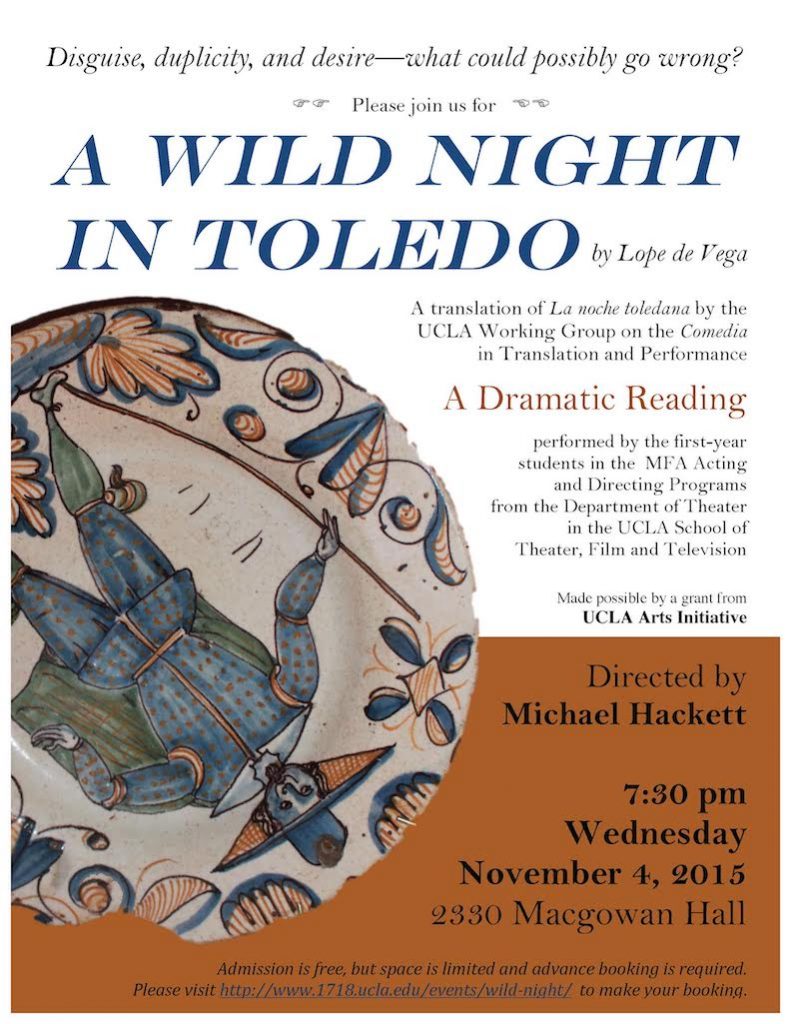UCLA STAGED READING SERIES

To Love Beyond Death
Pedro Calderón de la Barca
November 7, 2018
UCLA Freud Playhouse
UCLA Freud Playhouse
Calderón’s play dramatizes the moment when ethnic, religious, and cultural differences turned Spanish subjects against one another in the 1560’s Rebellion of the Alpujarra. When the Crown attempts to eradicate Andalusi culture from Spain, the Moriscos–Muslims forcibly converted to Christianity, as well as their descendants–are put into an impossible position, and turn to armed resistance. The tragic story of the Morisco Tuzaní’s search for revenge after the death of his beloved Clara is as much about love and devotion as it is about civil war, destruction, and the violent emergence of a modern nation.
The Widow of Valencia
Lope de Vega
November 8, 2017
UCLA Melnitz Hall
UCLA Melnitz Hall
The Widow of Valencia introduces audiences to Leonarda, a young women intent on protecting the freedom afforded by her husband’s death. Though she rejects her suitors by day, she makes her own arrangements by night, selecting a lover whom she deprives of the ability to identify her. Hers is a balancing act of appearance and disappearances, aspirations and desires. How long can she keep everyone in the dark?


What We Owe Our Lies
Juan Ruiz de Alarcón
November 2, 2016
UCLA Freud Playhouse
UCLA Freud Playhouse
Mexican writer Alarcón imagines a Madrid in which a foreign suitor can wreak havoc with preexisting alliances. Urbanity and urban space are at the heart of this play: how do you sort out your affections when the women you court live literally on top of each other, in a house with multiple stories? Parents remain offstage as sons and daughters must figure out their obligations to each other and to who they are, or at least who they say they are.
A Wild Night in Toledo
Lope de Vega
November 4, 2015
UCLA Macgowan Hall
UCLA Macgowan Hall
In Spanish popular culture, the phrase “una noche toledana” refers to a long and sleepless night of wild, often amorous intrigues, or of unrelenting annoyances. In this funny, fast-moving play, young men and women cross paths at a hostel in a single night. Under the covers of darkness and disguise, they use ingenuity and humor to navigate personal desires, negotiate collective frustrations, and test whether they can rewrite their destinies alongside their identities.


